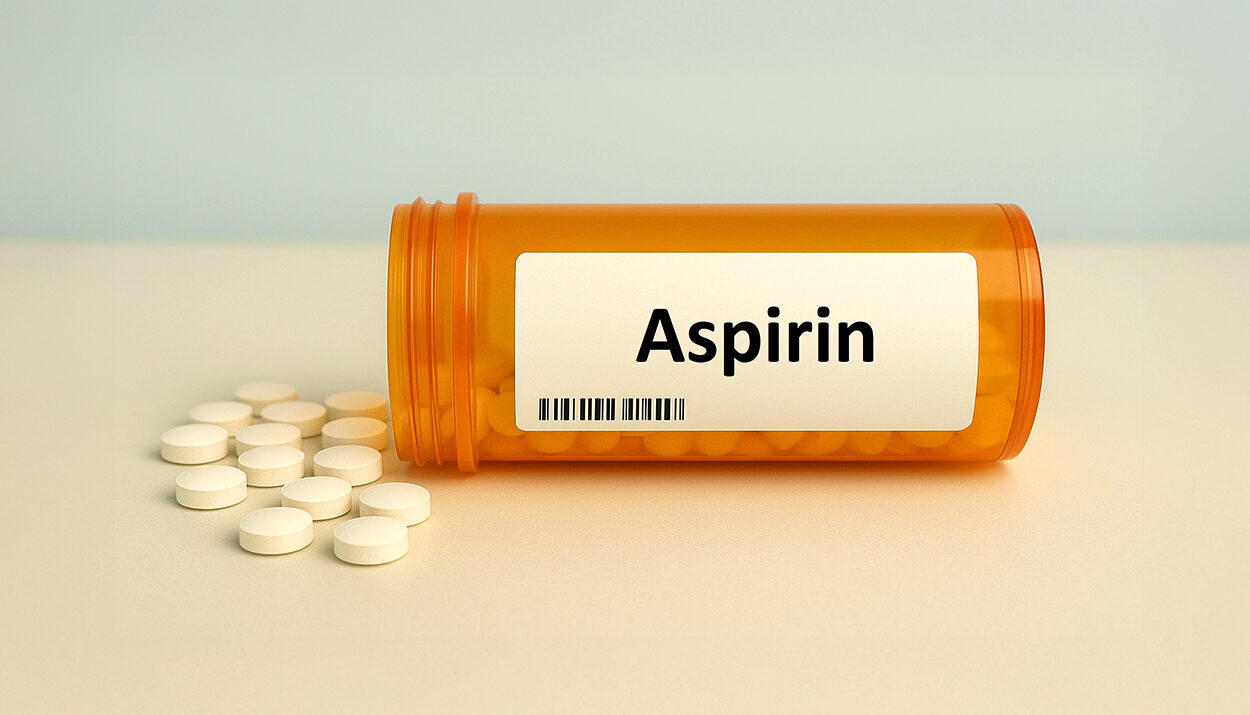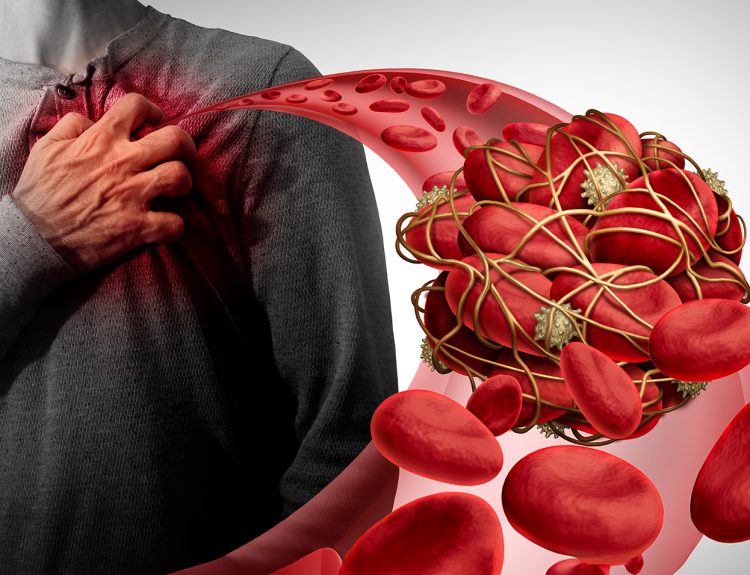For much of the 20th century, daily low dose aspirin was almost synonymous with heart health. Physicians routinely advised older adults to take a tablet a day to “thin the blood” and ward off heart attacks and strokes. This recommendation became deeply ingrained in both medical culture and public consciousness, supported by early studies showing aspirin’s ability to inhibit platelet aggregation and reduce vascular events. As a result, countless individuals over the age of 50 began long-term aspirin therapy, often without a clear distinction between those with and without existing heart disease.
But in recent years, paradigms have shifted. The ARRIVE, ASCEND, and ASPREE trials collectively challenged this long-standing approach – they have revealed aspirin side effects in elderly. Today, the consensus is clear; while aspirin low dose remains lifesaving for patients with established cardiovascular disease, its preventive power in those without prior events is far less universal than once thought.
In the modern era of personalized medicine, aspirin’s role has shifted from a default prescription to a carefully considered clinical decision.
The Evidence That Changed the Game
For years, low dose aspirin antiplatelet properties have made it a logical choice for preventing atherosclerotic events. However, as newer data emerged, the balance between its modest cardiovascular benefits and its significant bleeding risks became impossible to ignore.
Three pivotal studies have reshaped this understanding:
- ARRIVE (Aspirin to Reduce Risk of Initial Vascular Events)
Objective:
- To assess whether daily low dose aspirin (100 mg) could prevent a first cardiovascular event (heart attack, stroke, or cardiovascular death) in moderate-risk individuals.
Population:
- Over 12,000 men and women at moderate cardiovascular risk, primarily without diabetes.
- Participants were middle-aged and older adults with risk factors like hypertension, dyslipidemia, or smoking, but no prior cardiovascular disease.
Findings:
- No significant reduction was observed in major cardiovascular events compared to the placebo group.
- The rates of non-fatal myocardial infarction, stroke, or cardiovascular death were statistically similar in both groups.
- The findings indicated that aspirin low dose offered little or no benefit in preventing initial cardiovascular events in this population.
Risk: A significant rise in gastrointestinal bleeding was identified as one of the most common aspirin side effects in elderly population.
- ASCEND (A Study of Cardiovascular Events in Diabetes)
Objective:
- To determine whether daily low dose aspirin (100 mg) could reduce the risk of first-time cardiovascular events in people with diabetes, who are generally at higher baseline risk.
Population:
- Included over 15,000 adults with diabetes (both type 1 and type 2) but no prior history of cardiovascular disease.
- Participants were considered at elevated cardiovascular risk due to diabetes but represented a primary prevention group.
- The average age was around 63 years, with equal representation of men and women.
Findings:
- Daily aspirin use led to a modest reduction in serious vascular events, including non-fatal myocardial infarction, non-fatal stroke, and transient ischemic attack.
- However, this benefit was largely offset by a significant increase in major bleeding, particularly gastrointestinal and intracranial bleeding.
- The absolute difference in cardiovascular events prevented was nearly equal to the number of major bleeding events caused, showing a fine balance between benefit and harm.
Risks:
- Participants in the aspirin group experienced a higher incidence of major bleeding episodes, requiring medical intervention or hospitalization.
- The bleeding risk was most pronounced in older adults and those with additional risk factors such as hypertension or concomitant use of NSAIDs.
- ASPREE (Aspirin in Reducing Events in the Elderly)
Objective:
- To evaluate whether daily low dose aspirin (100 mg) could help extend disability-free survival (living free of dementia or persistent physical disability) in healthy older adults.
Population:
- Enrolled over 19,000 healthy older adults, aged 70 years and above (or 65 and older for U.S. minorities).
- Participants had no prior history of cardiovascular disease, dementia, or physical disability at baseline.
- Represented a true primary prevention population among the elderly – individuals who were healthy and independent at the start of the study.
Findings:
- Aspirin low dose did not improve disability-free survival compared with placebo over an average follow-up of nearly five years.
- The rates of cardiovascular events were similar between the daily aspirin and placebo groups, suggesting minimal preventive benefit.
- However, aspirin use was associated with a significantly higher risk of major hemorrhage, especially gastrointestinal and intracranial bleeding.
Risks:
- The trial highlighted the heightened vulnerability of older adults to bleeding complications, even with low-dose aspirin.
- Serious bleeding events often led to hospitalization and contributed to reduced overall quality of life.
- The risk-to-benefit ratio clearly tilted toward potential harm, particularly in those without established cardiovascular disease.
Together, these trials sent a clear message – aspirin side effects in elderly patients outweigh its potential benefits.
Bleeding vs. Protection: The Risk-Benefit Equation of Low Dose Aspirin

At the heart of this shift lies a fundamental clinical trade-off – reduction in non-fatal myocardial infarctions versus the increase in bleeding events.
Aspirin low dose can lower the risk of a first heart attack or ischemic stroke, but it also increases the likelihood of gastrointestinal (GI) and intracranial bleeding. For many low-risk older adults, especially those with controlled blood pressure and no prior cardiovascular events, the bleeding risk surpasses the protective effect.
Quantifying the Risk
For every 10,000 low-risk patients treated with aspirin for a year:
- Around 4–6 non-fatal heart attacks may be prevented.
- But 5–7 major bleeding events may occur.
- Some bleeds, particularly intracranial, can be catastrophic.
These numbers underline why cardiologists have become increasingly selective about prescribing aspirin for primary prevention.
Aspirin Daily Dose Clinical Decision-Making: Moving Beyond Blanket Recommendations
In clinical practice, the daily aspirin decision has become far more nuanced. There is no one-size-fits-all guideline. Instead, it requires individualized risk assessment.
A cardiologist’s approach now depends on several patient-specific variables:
Factors Against Aspirin Use:
- Advanced age (over 60–65 years)
- History of peptic ulcer disease or GI bleeding
- Uncontrolled hypertension
- Concomitant use of anticoagulants or NSAIDs
- Frailty or falls risk
Each of these factors independently raises the likelihood of bleeding, tilting the scale away from daily aspirin use.
Factors Supporting Aspirin Use (with caution)
- Strong family history of premature heart disease
- Metabolic syndrome or multiple cardiovascular risk factors
- Elevated coronary artery calcium (CAC) score
- Persistent high-risk lipid profile despite optimal therapy
In such cases, a low dose aspirin (75–100 mg) regimen, combined with gastric protection and close monitoring, may be appropriate. The key is shared decision-making, aligning treatment with both evidence and patient values.
Guideline Evolution: A Shift in Perspective
U.S. Preventive Services Task Force (USPSTF, 2022)
The USPSTF now advises against starting aspirin to prevent a first heart attack or stroke in adults aged 60 and older. For adults aged 40–59 who have a higher risk, the choice to use low dose aspirin should be made on an individual basis after consulting a doctor.
ACC/AHA Guidelines (2019)
The American College of Cardiology and American Heart Association similarly discourage daily aspirin use in low-risk individuals, suggesting it only for select high-risk patients without increased bleeding risk.
European Society of Cardiology (ESC)
The ESC also echoes this stance, advising against aspirin for primary prevention in patients without prior cardiovascular disease due to unfavorable risk–benefit balance.
In short, across continents, professional societies are converging on a more conservative approach.
Managing the “Legacy Patients”: When to Stop Aspirin
A practical challenge for cardiologists lies in addressing patients who have been taking low dose aspirin for decades “just in case.” Many of them equate aspirin with “heart protection” and fear discontinuation.
How to Approach the Conversation:
- Acknowledge their prior efforts to manage heart health.
- Explain the new evidence – as we age, bleeding risk rises faster than risk.
- Clarify that stopping aspirin is not withdrawal of care; it is adapting treatment to current science.
- Offer alternatives such as optimizing statin therapy, blood pressure control, and lifestyle interventions.
These conversations take time but build trust. Reassuring patients that they are still being proactively protected, just through safer, evidence-based methods, helps ease their anxiety.
Alternative Strategies for Cardiovascular Prevention
As aspirin’s role narrows, cardiologists are focusing more on holistic prevention strategies that offer better benefit-to-risk ratios.
- Lipid Management
- Statins remain the cornerstone of primary prevention.
- Evidence consistently shows statins reduce cardiovascular risk without increasing bleeding.
- Blood Pressure Control
- Tight control of hypertension prevents both heart attacks and strokes more effectively than aspirin in low-risk populations.
- Diabetes and Weight Management
- Aggressive management of diabetes and obesity significantly reduces cardiovascular risk without pharmacologic bleeding risk.
- Lifestyle Optimization
- Smoking cessation, dietary modification (Mediterranean diet), and regular physical activity offer substantial cardiovascular protection.
When these pillars are optimized, the incremental benefit of aspirin becomes minimal in most low-risk older adults.
Balancing Risks in the Real World: The Art of Individualization
Clinical judgment remains central to modern cardiology. While guidelines provide direction, personalized medicine ensures decisions align with each patient’s unique risk profile and goals.
A 70-year-old man with well-controlled hypertension, no diabetes, and no family history may be better off discontinuing aspirin. But a 62-year-old woman with diabetes, dyslipidemia, and a family history of early myocardial infarction might still benefit from low dose aspirin under close monitoring.
This case-by-case approach reflects the evolution of preventive cardiology – moving from broad generalizations to precise, individualized care.
Communicating Change: The Role of the Cardiologist
Beyond prescribing, cardiologists play a critical role as educators and advocates. The conversation around low dose aspirin requires empathy and clarity:
- Empathy, because patients may feel uneasy about abandoning long-trusted therapy.
- Clarity, because nuanced risk discussions can easily be misunderstood.
Providing patients with data, visuals, or decision aids can make the reasoning transparent. This shared decision-making not only improves adherence but also enhances patient satisfaction.
The Takeaway: A New Era in Cardiovascular Prevention
The shift away from daily aspirin use in low-risk older adults represents more than a change in prescription habits. It signifies maturation in preventive cardiology.
Modern care is not about doing more; it is about doing better by leveraging robust data, minimizing harm, and focusing on interventions that deliver clear net benefit.
Aspirin low dose remains a lifesaver in secondary prevention for those with prior myocardial infarction, stroke, or established atherosclerotic disease; its benefit is undisputed. But for primary prevention in low-risk older adults, the pendulum has decisively swung toward caution.
Key Points for Cardiologists
- Reassess aspirin therapy in patients over 60 without established cardiovascular disease.
- Weigh bleeding risk carefully, especially in those with GI or intracranial vulnerabilities.
- Prioritize alternative prevention, such as statins, BP control, and lifestyle measures.
- Communicate proactively with long-term aspirin users to guide safe discontinuation.
- Individualize decisions by considering family history, risk factors, and patient preference.
Final Thoughts

Aspirin’s legacy in cardiology is undeniable. It has saved countless lives! Yet, as with all interventions, context matters. Today’s data-driven medicine demands precision, not routine.
By reassessing low dose aspirin use through the lens of individual risk, cardiologists can continue to protect their patients not only from heart attacks and strokes, but also from preventable harm.
In the end, the best care is not just evidence-based; it is personally tailored, safe, and forward-looking.
Read also about
FAQs
-
Should older adults take aspirin every day to prevent a heart attack?
Recent research shows that daily aspirin is no longer recommended for most adults over 60 without heart disease, as the risk of bleeding often outweighs the benefits. Cardiologists now recommend individualized assessment before starting or continuing aspirin.
-
Can aspirin prevent a first heart attack or stroke?
Aspirin may slightly reduce the risk of a first heart attack, but in older adults or those at low cardiovascular risk, studies like ARRIVE, ASCEND, and ASPREE show that the benefit is often offset by a higher risk of serious bleeding.
-
What are the risks of taking aspirin every day?
The main risks include gastrointestinal bleeding, stomach ulcers, and bleeding in the brain (intracranial hemorrhage). Older adults and those on blood thinners or NSAIDs are especially vulnerable.
-
Who should still consider taking aspirin for heart health?
People with existing cardiovascular disease (previous heart attack or stroke) benefit the most. Some high-risk individuals without prior events, such as diabetics with multiple risk factors, may also benefit — but only after careful evaluation by a cardiologist.
-
Can stopping aspirin be harmful for long-term users?
For patients already on aspirin, stopping it is usually safe if they have no history of heart attack or stroke, but it should be done under a doctor’s guidance. The decision depends on age, cardiovascular risk, and bleeding history.

MDForLives is a global healthcare intelligence platform where real-world perspectives are transformed into validated insights. We bring together diverse healthcare experiences to discover, share, and shape the future of healthcare through data-backed understanding.







